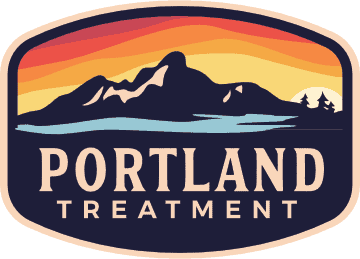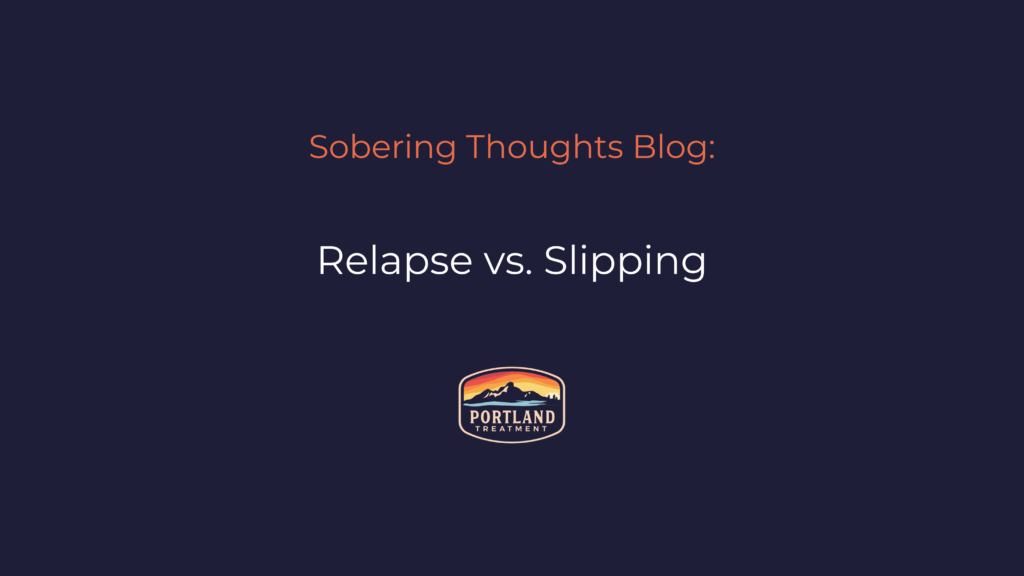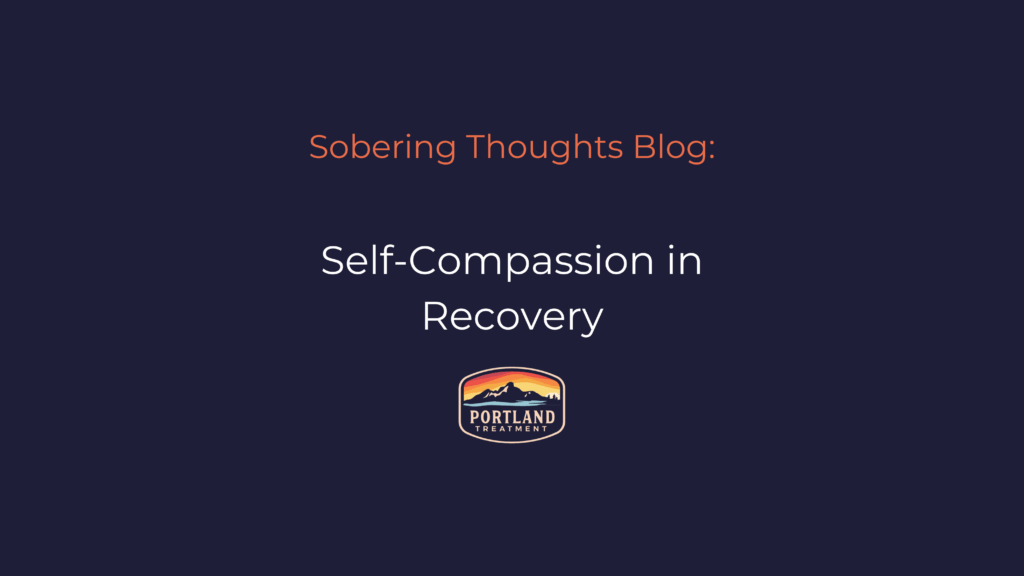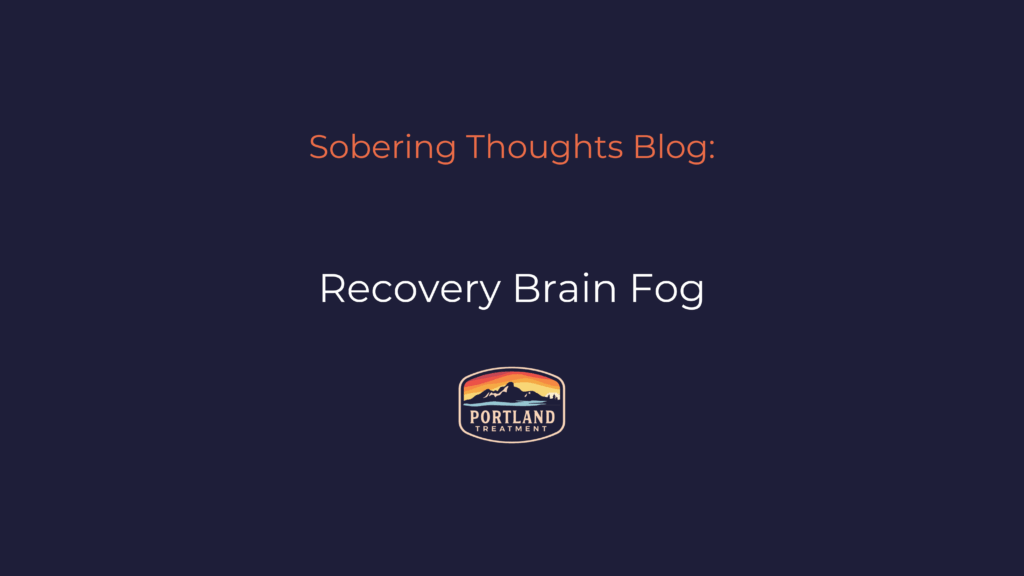Maine is taking a proactive and comprehensive approach to combat drug addiction and opiate use disorders through the implementation of the Maine Opiate Collaborative's Prevention and Harm Reduction Task Force. In their final recommendations for a comprehensive plan of action, the state has outlined clear goals and objectives to address the harmful effects of opiate …
Maine is taking a proactive and comprehensive approach to combat drug addiction and opiate use disorders through the implementation of the Maine Opiate Collaborative’s Prevention and Harm Reduction Task Force. In their final recommendations for a comprehensive plan of action, the state has outlined clear goals and objectives to address the harmful effects of opiate use and strengthen the public health infrastructure.
The primary goals include promoting public health and safety, reducing stigma around opiate use, and enhancing recovery opportunities for individuals with substance use disorders. With a focus on increasing understanding of harms, reducing youth opiate use, and preventing unnecessary access to legal opiates, Maine is dedicated to reducing opiate overdose and death in the state.
The article will delve into the specific strategies and initiatives put forward by Maine, including the ME Discretionary Funding for Fiscal Year 2021 and the next steps in their comprehensive approach to drug addiction recovery.
Introduction to Maine’s Comprehensive Approach to Drug Addiction Recovery
Maine’s Comprehensive Approach to Drug Addiction Recovery encompasses a strategic and multifaceted initiative to address the pervasive challenges of substance abuse, treatment, and recovery in the state. With the collaborative efforts of the Department of Public Safety, Department of Health and Human Services, and in alignment with the directives outlined in the Maine Revised Statutes, this comprehensive approach aims to combat the opioid epidemic and provide vital support for individuals battling substance use disorders.
This multidimensional approach reflects the concerted efforts of key departments and legislative bodies to create a cohesive and integrated response to the complex issues surrounding addiction. By leveraging resources and expertise across departments, Maine’s approach seeks to not only offer treatment but also address the root causes of substance abuse, emphasizing prevention and education.
The legislative frameworks in place provide a solid foundation for coordinated action, ensuring that policies and interventions are backed by statutory authority, enhancing their effectiveness.
Maine Opiate Collaborative: Prevention and Harm Reduction Task Force
The Maine Opiate Collaborative’s Prevention and Harm Reduction Task Force plays a pivotal role in designing and implementing vital strategies to prevent substance abuse and reduce the harm associated with opiate use disorders across the state. Through meticulous strategic planning and collaborative efforts, this task force strives to create impactful interventions and initiatives that mitigate the adverse effects of opiate use, reinforcing the broader objective of promoting public health and safety within Maine.
The Task Force takes on a multi-faceted approach towards achieving its goals. It actively engages in the assessment of existing substance abuse prevention programs, identifying areas for improvement and innovation. Concurrently, it collaborates with various stakeholders such as healthcare providers, law enforcement agencies, and community organizations to develop comprehensive harm reduction methodologies.
The Task Force is responsible for disseminating educational resources and awareness campaigns to raise public consciousness about the risks associated with opiate use, emphasizing key elements like safe opioid prescribing and the availability of overdose reversal medications.
Final Recommendations for Comprehensive Plan of Action to Address Opiate Use Disorders in Maine
The final recommendations for the comprehensive plan of action to address opiate use disorders in Maine encapsulate the culmination of rigorous strategic planning and collaborative efforts aimed at formulating a robust framework for treatment, recovery, and combatting substance abuse within the state. These recommendations serve as a testament to the resolute commitment of Maine to confront the opioid epidemic and provide essential support and resources for individuals grappling with opiate use disorders.
The multifaceted nature of these recommendations underscores the importance of a comprehensive approach that encompasses prevention, intervention, and long-term support. By leveraging a combination of evidence-based treatments, community resources, and targeted educational initiatives, the plan demonstrates a holistic strategy to address the complex challenges posed by opiate use disorders.
The recommendations emphasize the need for cross-sector collaboration, including healthcare providers, law enforcement, and public health agencies, to ensure a unified and concerted effort in combating the opioid epidemic. Integrating these recommendations into legislative and policy frameworks will be crucial in shaping the approach to treatment, recovery, and substance abuse management in Maine, thereby paving the way for impactful change.
Goals of the Comprehensive Approach
The goals of Maine’s Comprehensive Approach to Drug Addiction Recovery are anchored in the allocation of essential funding to bolster treatment, recovery, and substance abuse management initiatives, in complete alignment with the directives outlined in the Maine Revised Statutes. These goals are intricately designed to combat the far-reaching impact of the opioid epidemic, elevating the prioritization of treatment and recovery services to mitigate the devastating effects of substance abuse within the state.
Underpinning these goals is a strategic legislative focus on expanding access to evidence-based treatment programs, enhancing community-based recovery support services, and fostering collaboration between public health entities and behavioral health providers. The Comprehensive Approach also prioritizes the allocation of resources for prevention and early intervention efforts, aiming to reduce the incidence of substance abuse and give the power to individuals with the necessary tools for recovery.
Goal 1: Promote good public health and safety, and reduce the harmful effects of opiate use
Goal 1 of Maine’s Comprehensive Approach aims to champion public health and safety by implementing measures to drastically reduce the adverse effects of opiate use. This goal serves as a linchpin in the state’s concerted efforts to combat the opioid epidemic and substantially mitigate the detrimental impact of opiate use on individuals and communities across Maine.
This goal is underpinned by a multi-faceted strategy that encompasses various preventive and rehabilitative measures.
Education and awareness campaigns targeting both the general populace and at-risk populations are pivotal in fostering a deep understanding of the risks associated with opiate use and the availability of support services.
Additionally, expanding access to treatment programs and integrating them with mental health services is essential to provide comprehensive care for individuals struggling with opioid dependence.
Furthermore, enhancing prescriber education and implementing effective prescription drug monitoring programs are integral to curbing the overprescription of opioids and preventing the diversion of prescription medications to illicit use.
Goal 2: Strengthen and enhance Maine’s public health infrastructure
Goal 2 of Maine’s Comprehensive Approach centers on the imperative to fortify and enrich the state’s public health infrastructure, aligning with strategic planning to fortify the response to the opioid epidemic.
Enhancing the resilience and capacity of Maine’s public health systems is instrumental in establishing a robust foundation for addressing the complex challenges posed by opiate use disorders and promoting comprehensive recovery efforts. This involves implementing evidence-based interventions, expanding access to treatment and support services, and fostering collaboration among healthcare providers, public health agencies, and community organizations.
By integrating resources and expertise, the goal aims to optimize the delivery of prevention, treatment, and recovery services, thereby strengthening the overall public health infrastructure in Maine.
Objectives to Achieve Goals
The objectives established to realize the overarching goals of Maine’s Comprehensive Approach are intricately designed to leverage funding effectively, drive treatment and recovery initiatives, and combat the opioid epidemic with a strong emphasis on harm reduction. These objectives form a cohesive framework, aligning with the state’s resolute commitment to address the pervasive challenges of substance abuse and foster sustained recovery.
Emphasizing the critical momentum in this legislative endeavor, the objectives outlined in Maine’s Comprehensive Approach are strategically calibrated to optimize the allocation and utilization of funding earmarked for combating the opioid epidemic. By prioritizing transparency and accountability, these objectives aim to ensure that resources are directed towards evidence-based treatment modalities and comprehensive recovery programs.
A pivotal facet of these objectives lies in fostering collaboration and synergy among stakeholders, including healthcare providers, community organizations, and law enforcement agencies. This collaborative approach is central to advancing treatment and recovery efforts, as it facilitates the seamless coordination of services and the dissemination of best practices.
The strategic embrace of harm reduction strategies within these objectives reflects a progressive paradigm shift towards a more holistic approach to addressing substance abuse. By championing harm reduction, Maine is actively working to minimize the adverse effects of drug use while promoting wellness and responsible choices.
Objective 1: Increase understanding of harms and decrease stigma surrounding opiate and heroin use disorder
Objective 1 focuses on fostering a deeper understanding of the adverse impacts and complexities associated with opiate and heroin use disorders, concurrently striving to diminish stigmatization through robust harm reduction and public health initiatives in Maine.
This objective targets various areas to achieve its core framework. It involves educational campaigns to enlighten individuals about the detrimental effects of the opiate and heroin use disorders, aiming to reduce misconceptions and stereotypes. Additionally, training programs for healthcare professionals play a crucial role in recognizing and addressing these disorders, consequently promoting early intervention and access to treatment.
The strategic placement of community-based facilities with comprehensive harm reduction services fosters a supportive environment for affected individuals, thereby reducing the social stigma associated with substance use disorders.
Objective 2: Decrease youth use of opiates and associated risk factors
Objective 2 is dedicated to curbing the prevalence of youth opiate use and minimizing the associated risk factors through targeted prevention and substance abuse management strategies in Maine, aligning with the broader vision of safeguarding the well-being of the state’s younger population.
In pursuit of this goal, specialized educational programs aimed at fostering awareness of the dangers of opiate use among adolescents and their families have been developed and implemented.
Additionally, community-based support systems have been established to provide counseling and rehabilitation services tailored to the unique needs of young individuals grappling with substance abuse issues.
Objective 3: Reduce unnecessary access to legal opiates
Objective 3 seeks to significantly diminish the unwarranted availability of legal opiates, aligning with law enforcement efforts and strategic interventions aimed at curbing the proliferation of these substances within Maine, thereby bolstering the state’s response to the opioid epidemic.
To achieve this, law enforcement agencies are implementing multi-faceted methodologies, including stringent monitoring of prescription practices, increased inter-agency collaboration, and conducting targeted operations to disrupt illicit opioid distribution networks. Coupled with legislative measures, such as mandatory prescription drug monitoring programs and laws restricting opioid prescription quantities, these efforts are integral to mitigating the diversion of legal opiates for illicit purposes and reducing the incidence of opioid abuse and overdose.
Objective 4: Decrease the number of drug-affected babies born in Maine each year
Objective 4 centers on the critical mission to reduce the incidence of drug-affected births in Maine, embracing preventive measures and substance abuse management strategies to safeguard the well-being of infants and families across the state.
This objective signifies a proactive approach to address the detrimental impact of substance abuse on maternal and infant health. Prevention efforts encompass education programs, community interventions, and access to specialized care for expectant mothers struggling with substance use disorders.
Substance abuse management strategies involve comprehensive screening protocols, tailored treatment plans, and continuous support services to mitigate the risks associated with drug-affected pregnancies. By prioritizing these interventions, Maine aims to foster a nurturing environment for both mothers and their newborns, fostering holistic well-being and long-term resilience.
Objective 5: Decrease opiate overdose and death in Maine
Objective 5 is dedicated to effecting substantial reductions in opiate overdose and related fatalities within Maine, emphasizing the critical role of emergency services and targeted treatment interventions in combating the pervasive impact of opiate misuse and overdose.
Emergency services, including ambulance response, emergency departments, and urgent care clinics, play a pivotal role in providing immediate medical attention to individuals experiencing opiate overdose, thereby preventing fatal outcomes.
Moreover, treatment interventions such as medication-assisted treatment (MAT), counseling, and support services contribute significantly to addressing the root causes of opiate misuse and reducing the likelihood of recurrent overdose incidents.
Objective 6: Increase opportunities and decrease barriers to recovery for people with substance use disorders
Objective 6 is poised to enhance the avenues for recovery and effectively diminish obstacles confronting individuals with substance use disorders, aligning with comprehensive treatment and support services designed to foster sustained recovery within Maine.
These strategies encompass a multifaceted approach, incorporating clinically proven interventions, community-based initiatives, and peer support programs, all aimed at establishing a supportive environment conducive to individuals’ long-term recovery. The emphasis on prevention and early intervention is paramount, striving to identify and address substance use issues at their nascent stages to curtail potential escalation and improve outcomes.
Objective 1: Enhance the state’s capacity to implement a comprehensive approach to prevent and reduce opiate use disorders
Objective 1 focuses on bolstering Maine’s capacity to deploy a comprehensive approach aimed at preventing and diminishing opiate use disorders, aligning with strategic planning and preventive measures to fortify the state’s response to the challenges posed by opiate misuse.
This initiative encompasses a multitude of interconnected elements, including the identification of high-risk populations, targeted education and awareness campaigns, expansion of treatment facilities, and the enhancement of law enforcement efforts to curtail illicit drug supplies. By implementing evidence-based practices and collaborating with diverse stakeholders, the state aims to establish a robust infrastructure that not only combats the immediate impact of opiate misuse but also proactively addresses the systemic issues fueling this public health crisis. The emphasis lies on fostering a proactive, multifaceted approach to address opiate use disorders, reflecting a commitment to safeguarding the well-being of Maine’s residents.
Objective 2: Increase district and local level capacity to prevent and reduce opiate misuse and overdose in Maine
Objective 2 is dedicated to augmenting the capacity and preparedness of district and local entities in Maine to effectively prevent and reduce opiate misuse and overdose, underscoring the importance of decentralized interventions and community-level initiatives in combatting the opioid epidemic.
Community-level initiatives are particularly crucial in this endeavor, as they serve as the frontline of defense against opiate misuse and overdose within neighborhoods and local communities. By give the power toing local entities with the necessary tools and resources, such as training programs, naloxone distribution initiatives, and public awareness campaigns, Objective 2 aims to create a sustainable network of support that responds to the unique challenges faced at the district and local levels.
ME Discretionary Funding Fiscal Year 2021
The ME Discretionary Funding for Fiscal Year 2021 represents a critical vehicle for allocating grants, supporting strategic initiatives, and optimizing appropriations, laying the groundwork for advancing comprehensive recovery efforts in Maine. This funding is poised to invigorate various strategic planning endeavors and address unexpended funds, reinforcing the resilience and sustainability of recovery initiatives within the state.
One of the key features of ME Discretionary Funding is its ability to bolster targeted initiatives that align with the state’s recovery roadmap, promoting economic stability, social welfare, and infrastructural enhancements. The allocation and utilization of this funding prioritize impactful programs, amplifying the effectiveness of recovery efforts at the local and regional levels, fortifying the economic fabric of Maine.
Through judicious use, ME Discretionary Funding engenders a ripple effect, amplifying its reach and magnifying the positive outcomes across diverse sectors within the state.
Center: SP
Center: SP serves as a pivotal conduit for directing funding and resources towards critical programs and initiatives, with a focused emphasis on supporting the Aroostook Mental Health Services and aligning with the directives outlined by SAMHSA. This center stands as a cornerstone in fortifying Maine’s recovery infrastructure and advancing strategic recovery efforts to combat substance abuse.
Its role extends beyond mere financial backing to actively fostering collaborations and partnerships that amplify the impact of these programs. By aligning with SAMHSA directives, Center: SP ensures that the initiatives it supports adhere to evidence-based practices and the latest developments in the field of mental health and substance abuse treatment.
The Center plays a crucial part in advocating for comprehensive approaches that encompass prevention, intervention, and long-term support. Through its strategic allocation of resources, it enables the sustainability of vital programs, providing a lifeline for individuals and families grappling with mental health challenges.
Center: TI
Center: TI stands as a pivotal entity dedicated to channeling grants and resources towards pivotal programs and services, with a specific focus on give the power toing comprehensive recovery support for individuals grappling with substance use disorders within Maine. This center is instrumental in fostering sustained recovery initiatives and advancing targeted recovery services across the state.
The critical role played by Center: TI in driving grants and resources towards vital recovery programs and services cannot be overstated. By leveraging its extensive network and strategic partnerships, the center ensures that these resources are directed towards initiatives that directly benefit individuals in need. The impact of these efforts is evident in the tangible support provided to those seeking to overcome substance use disorders.
Center: TI’s commitment to transparency and accountability ensures that grants are allocated efficiently and effectively, maximizing their impact on the ground. This dedicated approach contributes significantly to the expansion and improvement of recovery services, addressing the intricate needs of diverse communities and populations.
Conclusion and Next Steps
The comprehensive approach to addressing substance abuse and fostering recovery in Maine reflects an unwavering commitment to strategic planning and concerted initiatives, under the aegis of the Department of Health and Human Services.
By prioritizing a multi-faceted approach, the efforts encompass targeted prevention programs, evidence-based treatment modalities, and community-based recovery support initiatives, showcasing a holistic strategy.
The collaborative framework extends to partnerships with healthcare providers, law enforcement agencies, and community organizations to ensure a unified frontline against substance misuse.
Emphasizing the significance of early intervention and continuity of care, Maine’s strategy aligns with national best practices to address substance abuse comprehensively.
Frequently Asked Questions
What is Maine’s Comprehensive Approach to Drug Addiction Recovery?
Maine’s Comprehensive Approach to Drug Addiction Recovery is a multi-faceted program that addresses drug addiction and promotes recovery through various initiatives and services.
What are the key components of Maine’s Comprehensive Approach to Drug Addiction Recovery?
The key components of Maine’s Comprehensive Approach to Drug Addiction Recovery include prevention, treatment, and recovery support services, as well as law enforcement efforts and community partnerships.
How does Maine’s Comprehensive Approach to Drug Addiction Recovery address prevention?
Maine’s Comprehensive Approach to Drug Addiction Recovery focuses on preventing drug addiction through education, outreach, and awareness campaigns, as well as supporting initiatives that promote healthy and drug-free lifestyles.
What treatment options are available through Maine’s Comprehensive Approach to Drug Addiction Recovery?
Maine’s Comprehensive Approach to Drug Addiction Recovery offers a range of evidence-based treatment options, including medication-assisted treatment, counseling, and support groups, to help individuals overcome drug addiction and achieve long-term recovery.
How does Maine’s Comprehensive Approach to Drug Addiction Recovery support those in recovery?
Maine’s Comprehensive Approach to Drug Addiction Recovery provides a variety of recovery support services, such as peer support groups, employment assistance, and housing programs, to help individuals maintain their sobriety and rebuild their lives.
How can I get involved in Maine’s Comprehensive Approach to Drug Addiction Recovery?
There are many ways to get involved in Maine’s Comprehensive Approach to Drug Addiction Recovery, including volunteering with local organizations, supporting community initiatives, and advocating for policies that promote addiction recovery.
Comprehensive and Compassionate Addiction Treatment at Portland Treatment in Maine
At Portland Treatment in Maine, we are deeply committed to providing comprehensive and compassionate care for those struggling with addiction. Our approach is holistic, focusing on the individual as a whole, rather than just the symptoms of addiction. We understand that each journey to recovery is unique, and our expert team is dedicated to creating personalized treatment plans that cater to the specific needs and circumstances of each client.
Our facility offers a wide range of services designed to support individuals at every stage of their recovery journey. From initial detoxification to inpatient rehab, outpatient programs, and ongoing aftercare support, we ensure a continuum of care that fosters lasting recovery. Our treatment modalities include evidence-based therapies, innovative treatment techniques, and holistic approaches that encompass mental, physical, and emotional health.
Recognizing the importance of a supportive environment in the recovery process, Portland Treatment provides a nurturing and safe space where individuals can heal and grow. Our programs are designed to empower clients, helping them develop the skills and resilience needed to overcome addiction and rebuild their lives. Family involvement is also a key component of our approach, as we believe in healing and strengthening family relationships as part of the recovery journey.
At Portland Treatment, we pride ourselves on our team of highly qualified professionals who bring a wealth of experience and expertise to our programs. Our staff includes licensed therapists, medical professionals, and addiction specialists who are passionate about helping individuals achieve sobriety and wellness. We are constantly evolving our practices to incorporate the latest research and best practices in addiction treatment, ensuring the highest standard of care for our clients.
Choosing Portland Treatment in Maine means choosing a path to recovery that is supported by expertise, compassion, and a commitment to excellence. We are not just a treatment center; we are a community dedicated to helping individuals and their families overcome the challenges of addiction and move forward to a brighter, healthier future.






